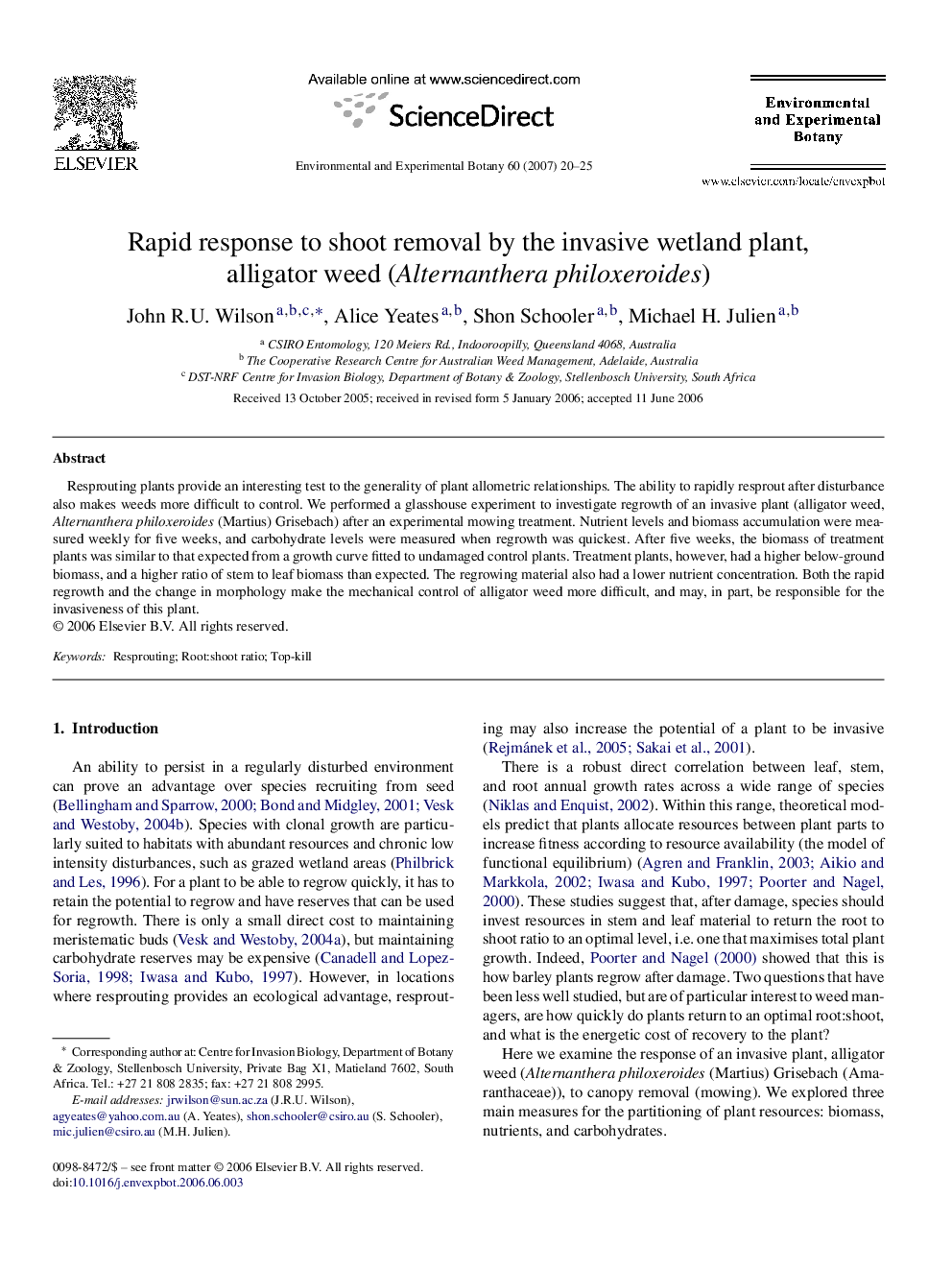| Article ID | Journal | Published Year | Pages | File Type |
|---|---|---|---|---|
| 4555619 | Environmental and Experimental Botany | 2007 | 6 Pages |
Resprouting plants provide an interesting test to the generality of plant allometric relationships. The ability to rapidly resprout after disturbance also makes weeds more difficult to control. We performed a glasshouse experiment to investigate regrowth of an invasive plant (alligator weed, Alternanthera philoxeroides (Martius) Grisebach) after an experimental mowing treatment. Nutrient levels and biomass accumulation were measured weekly for five weeks, and carbohydrate levels were measured when regrowth was quickest. After five weeks, the biomass of treatment plants was similar to that expected from a growth curve fitted to undamaged control plants. Treatment plants, however, had a higher below-ground biomass, and a higher ratio of stem to leaf biomass than expected. The regrowing material also had a lower nutrient concentration. Both the rapid regrowth and the change in morphology make the mechanical control of alligator weed more difficult, and may, in part, be responsible for the invasiveness of this plant.
